
The Asian Games, also known as Asiad, is a continental multi-sport event held every fourth year among athletes from all over Asia. The Games were regulated by the Asian Games Federation (AGF) from the first Games in New Delhi, India in 1951, until the 1978 Games. Since the 1982 Games, they have been organized by the Olympic Council of Asia (OCA), after the breakup of the Asian Games Federation. The Games are recognized by the International Olympic Committee (IOC) and are described as the second largest multi-sport event after the Olympic Games.

The India national football team represents India in international football and is governed by the All India Football Federation (AIFF) and is under the global jurisdiction of FIFA. It is governed in Asia by the Asian Football Confederation (AFC) and in South Asia by South Asian Football Federation (SAFF) — both of which were co-founded by the Indian team's supervising body, the AIFF.
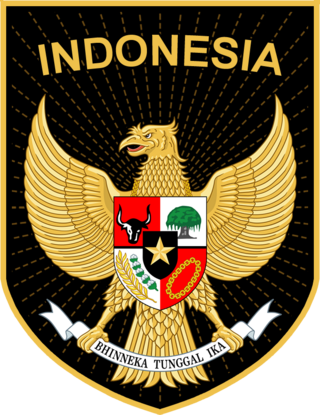
The Indonesia national football team represents Indonesia in international football. They were the first Asian team to participate in the FIFA World Cup, particularly in the 1938 edition as the Dutch East Indies. The 6–0 loss to eventual finalists Hungary in the first round remains the nation's only appearance in the World Cup. Thus, Indonesia holds the World Cup record as the team with the fewest matches played (1) and one of the teams with the fewest goals scored (0).

The AFC Champions League is an annual continental club football competition organised by the Asian Football Confederation, and contested by Asia's top-division football clubs. It is the most prestigious club competition in Asian football, played by the national league champions of their national associations.

SEA Games, officially known as the South East Asian Games and abbreviated as SEAG, is a biennial multi-sport event involving participants from the current 11 countries of Southeast Asia. The games are under the regulation of the Southeast Asian Games Federation with supervision by the International Olympic Committee (IOC) and the Olympic Council of Asia (OCA).
The Philippines men's national basketball team, commonly known as Gilas Pilipinas, is the basketball team representing the Philippines. The team is managed by the Samahang Basketbol ng Pilipinas.

The 2006 Asian Games, officially known as the XV Asiad, was an Asian multi-sport event held in Doha, Qatar from December 1 to 15, 2006, with 424 events in 39 sports featured in the games. Doha was the first city in its region and only the second in West Asia to host the games. The city will host the games again in 2030.
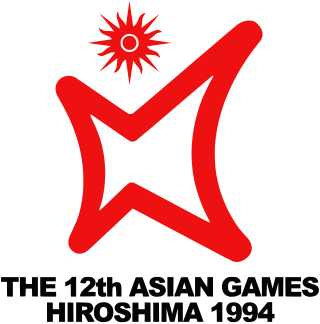
The 1994 Asian Games, also known as the XII Asiad and the 12th Asian Games, were held from October 2 to 16, 1994, in Hiroshima, Japan. The main theme of this edition was to promote peace and harmony among Asian nations. It was emphasized by the host because the venue was the site of the first atomic bomb attack 49 years earlier. Due to the 1991 Gulf War, Iraq was suspended from the games. The games debuted former republics of the Soviet Union: Kazakhstan, Kyrgyzstan, Tajikistan, Turkmenistan, and Uzbekistan.
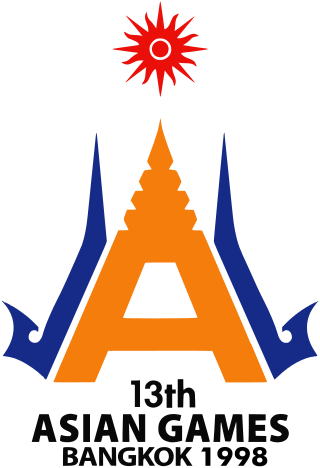
The 1998 Asian Games, officially known as the 13th Asian Games and the XIII Asiad, was an Asian multi-sport event celebrated in Bangkok, Thailand from December 6 to 20, 1998, with 377 events in 36 sports and disciplines participated by 6,554 athletes across the continent. The football event commenced on 30 November 1998, a week earlier than the opening ceremony.

The 2010 Asian Games, officially known as the XVI Asian Games and also known as Guangzhou 2010, were a regional multi-sport event that had taken place from November 12 to 27, 2010 in Guangzhou, Guangdong, China. It was the second time China hosted the Asian Games, with the first one being Asian Games 1990 in Beijing.

The South Asian Games, formerly known as the South Asian Federation Games, is a quadrennial multi-sport event held among the athletes from South Asia. The governing body of these games is South Asia Olympic Council (SAOC), formed in 1983. Currently, the SAOC comprises 7 member countries, namely Bangladesh, Bhutan, India, Maldives, Nepal, Pakistan, and Sri Lanka. Afghanistan participated 4 times in the SAF Games since 2004, but left the SAOC after participating in the 2016 edition and joined CAOC.
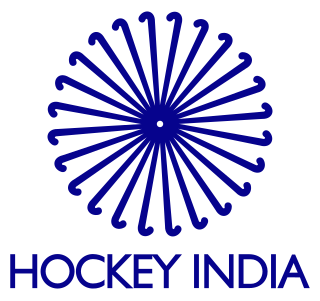
The India men's national field hockey team represents India in international field hockey competitions, and is governed by Hockey India. The team was formerly under the control of Indian Hockey Federation. India was the first non-European team to be a part of the International Hockey Federation. In 1928, the team won its first Olympic gold medal and until 1960, the Indian men's team remained unbeaten in the Olympics, winning six gold medals in a row. The team had a 30–0 winning streak during this time, from their first game in 1928 until the 1960 gold medal final which they lost. India also won the World Cup in 1975. India's hockey team is the most successful team ever in the Olympics, having won a total of eight gold medals – in 1928, 1932, 1936, 1948, 1952, 1956, 1964 and 1980. India also has the best overall performance in Olympic history with 83 victories out of the 134 matches played. They have also scored more goals in the Olympics than any other team. They are also the only team ever to win the Olympics without conceding a single goal, having done so in 1928 and 1956.
The men's football tournament has been a regular Asian Games sporting event since the 1951 edition, while the women's tournament began in 1990.

The 2018 Asian Games, officially known as the 18th Asian Games and also known as Jakarta-Palembang 2018 or Indonesia 2018, was a continental multi-sport event that was held from 18 August to 2 September 2018 in Jakarta and Palembang.

The India national under-23 football team represents India in international under-23 football and is controlled by the All India Football Federation (AIFF). A member of the Asian Football Confederation (AFC), the team is eligible to compete in the Summer Olympic Games, the AFC U-23 Asian Cup, and the Asian Games, subject to qualification.

India is a member of the South Asian Zone of the Olympic Council of Asia (OCA), and has participated in the Asian Games since their inception in 1951. The Indian Olympic Association, established in 1927, and recognised in the same year by the International Olympic Committee, is the National Olympic Committee for India.
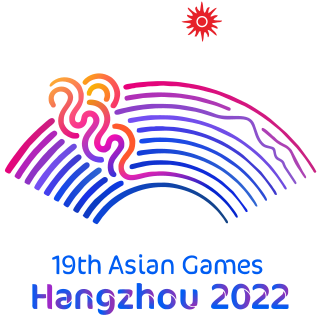
The 2022 Asian Games, officially the 19th Asian Games also known as Hangzhou 2022, is a continental multi-sport event currently being held from 23 September to 8 October 2023 in Hangzhou, Zhejiang Province, China. The games marked the 110th anniversary since the creation of the first continental event, starting with the 1913 Far Eastern Championship Games.
Football has been a sport at the South Asian Games since it commenced in 1984. Since the 2004 South Asian Games, the age limit for men's teams is under 23, plus up to three overaged players for each squad, which is the same as the age limit in football competitions at the Summer Olympics and Asian Games. Nepal and Pakistan are currently the most successful countries in the Men's event with 4 Gold Medals each while India is the most successful in Women's event with 3 Gold Medals.
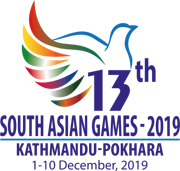
The 2019 South Asian Games, officially the XIII South Asian Games, was a major multi-sport event which was originally slated to be held from 9 to 18 March 2019 in Kathmandu and Pokhara, Nepal. However, the dates were postponed and the event was held from 1–10 December 2019, coincidentally at the same time as the 2019 Southeast Asian Games in the Philippines. The new dates were confirmed at the South Asian Olympic Council Executive Board meeting in Bangkok on 1 March 2019. The Dasarath Stadium hosted the opening ceremony along with the men's football tournament, with the stadium's renovation after the 2015 earthquake completed in under 10 months with an increased capacity of 20,000, along with the closing ceremony on 10 December.
















